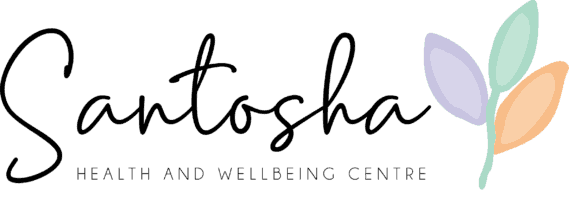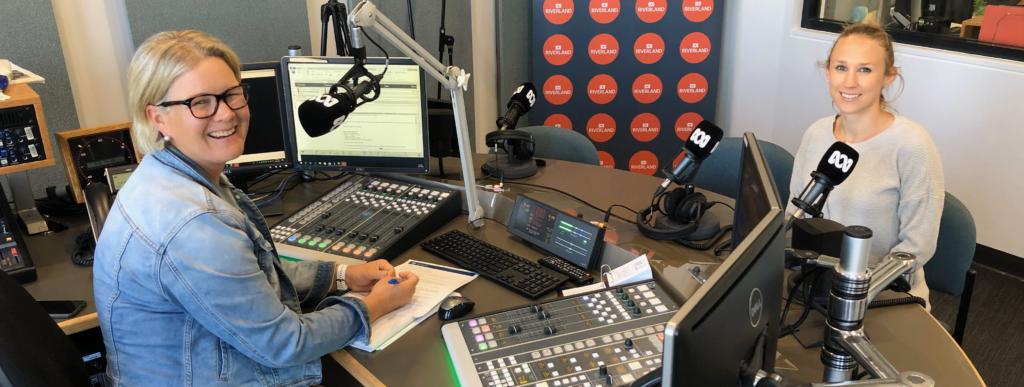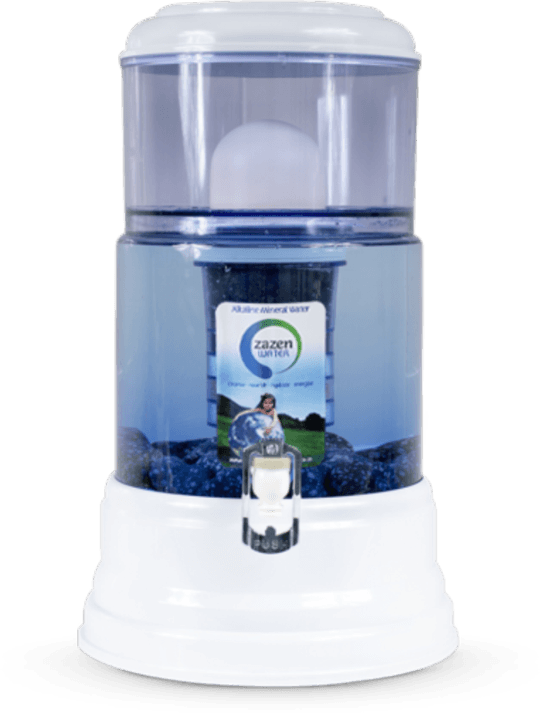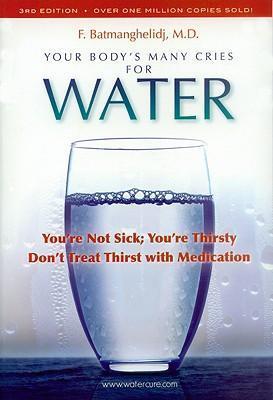I recently chatted with Kerrie Lush on the ABC about the benefits of drinking more water and the effects of dehydration. It was a great chat and as usual we were running out of time. In case you missed it, I have outlined for you the main points that we discussed and a few extra bits we didn’t.
Water is vital for nearly every function of our body. We’ve all heard that our bodies are a significant proportion water, but it’s often easy to forget to top it up. Here are some important functions of water in your body:
- Regulates temperature
- Helps digest our food
- Protects our joints
- Helps our brain to function
- Flushes out toxins through the bowel and bladder
It gets tricky though. The thirst mechanisms in our body rely on hydration, so the more dehydrated you are, the less thirsty you feel. It can be a viscous cycle. And it doesn’t take much. Just a 1 percent drop in hydration levels, is enough to affect brain function. Water is that important!
So how much water do we need?
On an average day, 30mL per kilogram of body is a good baseline amount. Basically you just take your weight, times it by 3 and add some zeros. I’m about 60 kilograms, so 60 x 3 + some 0s = 1800mL. For a 90 kilogram person, 2700mL. The same applies for kids, but as they are a greater proportion of water (up to 75% compared with our 60-70%) they often need a bit more than this.
These calculations obviously change depending on weather, activity level, humidity, other dietary intakes. So on a hot day, when you’ve exercised and had a morning coffee, this amount would need to be increased significantly. Caffeine is a diuretic, it makes you wee more. For each coffee, you need to add two more cups of water to offset this. Same goes for Coke. Black tea is a mild diuretic, so an extra cup of water before or after your tea will suffice.
70kg person = 2.1L
One coffee with breakfast, one black tea in the afternoon = 2 cups + 1 cup (~750mL)
Total for the day = 2.85L
Alcohol is another whole game!
There is a hormone called vasopressin, (Vaso – blood vessel, -pressin. It constricts blood vessels) so when the body is low in water, a gland in the brain constricts the blood vessels. This helps to get water into the cells, but at the same time it increases blood pressure. Alcohol supresses vasopressin. So where a slight level of dehydration can easily be fixed with a few glasses of water, alcohol makes the problem much worse. Nerve cells have higher amounts of vasopressin receptors, which shows that nerve cells need water more than other cells in the body.
Can we drink too much water?
It’s rare, but definitely possible. Most cases involve athletes in extreme conditions. Over-hydration of the body is sodium deficiency, or hyponatremia and it’s life-threatening. But unless you’re running ultramarathons in 42 degree heat, chances are you don’t need to worry. We have also been warned away from salt in recent years but this unnecessary fear has lead to salt depletion in some people. Salt is actually a vital component for maintaining hydration in the body.
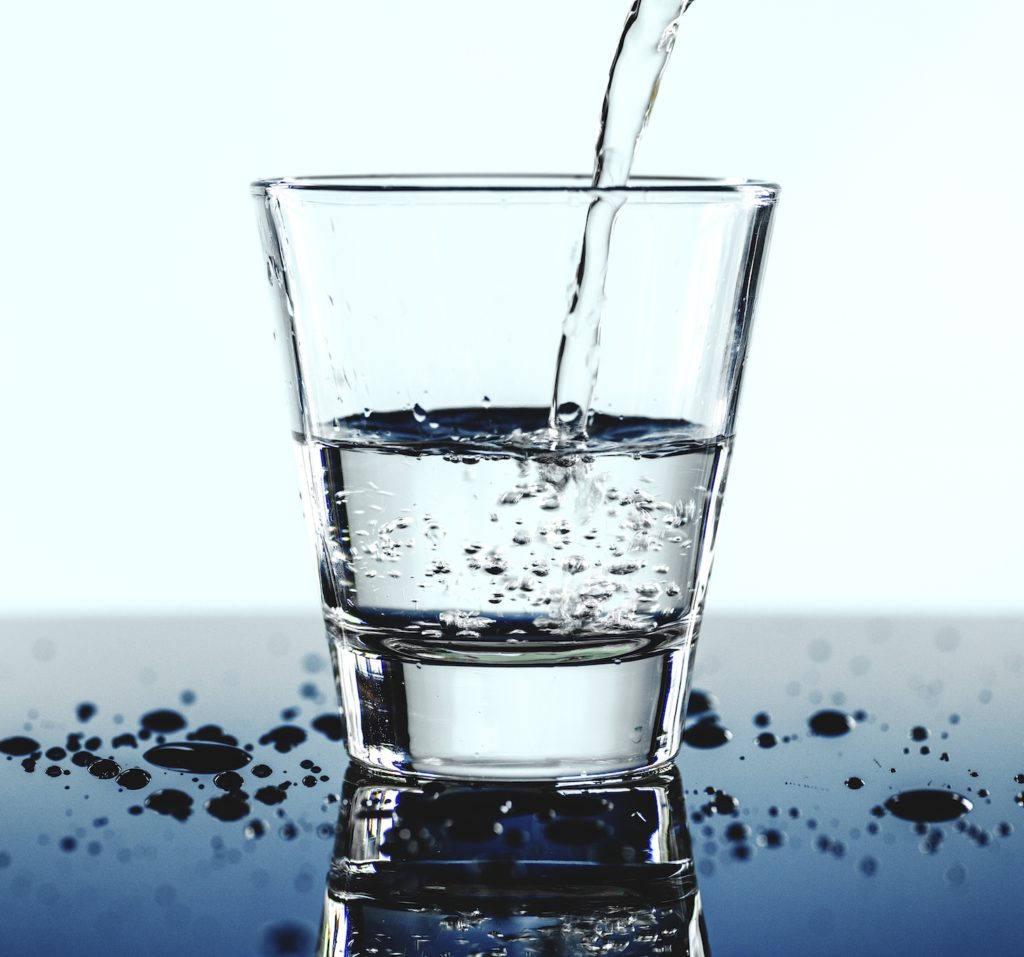
Certain medications however, may mean you need to monitor your water intake. And if that’s the case its even MORE important to ONLY drink water; not coffee, tea and definitely not alcohol. Herbal teas are ok. When patients are put on a fluid restricted diet, they are instructed to measure their entire liquid intake. This is all well and good, but if the liquid intake is a coffee for breakfast, cup of tea for morning tea, a juice with lunch and a shot of whisky before bed, the body is going to be in serious trouble in a short period of time. And if a liquid restriction is in place, chances are the body is not well already!
Easy ways to increase water intake
Start the day with two glasses – The very first thing we should do when waking up is have a big glass of water. It gets our digestive system going, starts flushing toxins and helps to wake the body. It also gets you ahead with your intake for the day. Try having another glass just before your breakfast. If you keep this up through the day and have one glass before and/or after each meal, they add up quickly.
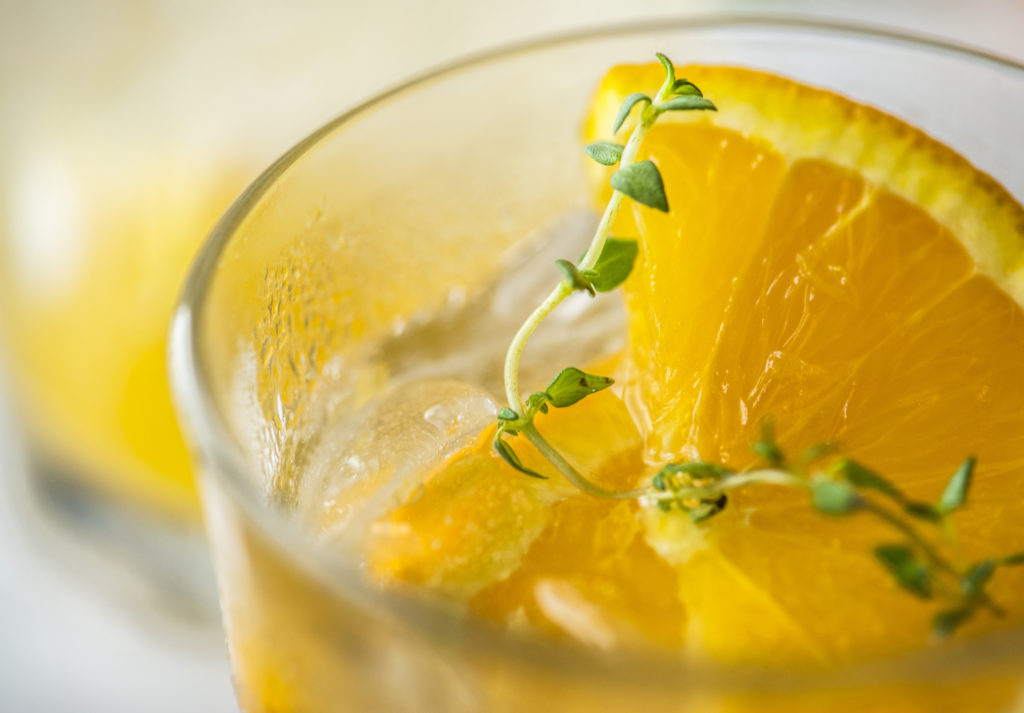
Add some flavour – Try adding lemon, lime or cucumber if you get tired of the taste of just water. Remember that herbal teas such as chamomile and peppermint are ok too as they don’t have the diuretic affect of black tea or coffee. At Christmas time, I love putting strawberries and basil leave into my water.
Keep a bottle with you at all times – I never go anywhere without my filled up glass bottle, sometimes two of them. It has just become habit. If I’m heading into the shops, I will have a big swig of water before heading in and another one as I get back into the car. Glass or stainless steel bottles such as these are the best type to store your water. It’s not good to keep water in plastic for any length of time, particularly if it’s going to be exposed to any kind of heat. No matter how stable they say the plastic is, even if it’s BPA free, there are many other nasties that can leech from plastic.
Keep the lid off – This is a little trick I use at work. My water bottle stays out the back with the lid off and between patients, I completely mindlessly sip until it’s all gone. I use the same trick if I’m at home, working at my desk. Without even noticing, I’ve finished the bottle and need to refill. It is a habit you have to create though!
Be mindful of your cravings – Sometimes when we think we’re hungry, we’re actually dehydrated. If you find yourself snacking though the day, trying drinking a glass of water instead. Often that will help the craving and it’s great for weight loss too!
Does it matter what kind of water we drink?
This was a great question that Kerrie asked during the interview. In the end, the answer is no. As long as you are drinking water, pure water, you will get the benefits. Taking that a step further, water that has been filtered is even better. Rainwater can also contain many toxins such as pollution, agricultural sprays, bird faeces and other chemicals found on our roofs. Parasites can also be present. So while rainwater is my preferred choice for drinking water, it most certainly needs to be filtered.
Tap water that flows into our houses has generally been treated with all sorts of chemicals including fluoride and chloride, both of which can be detrimental to our health. As they are both halogens (I’m taking you back to high school chemistry here) they will compete with another important halogen, iodide, which is essential for optimal health. This includes brain development in unborn babies, thyroid function and metabolism.
What do I drink?
At home and at work I prefer the zazen Alkaline Water System. It starts with a ceramic filter which pre-filters rust, sediment and organic matter and stops bacteria, ecoli, giardia, cysts and other parasites to 0.2 micron. Next it runs through a multi-stage filter which reduces 99% of the chlorine, heavy metals and up to 90% of fluoride. Finally in the bottom tank that you tap from, there are silver stones with antibacterial properties and mineral stones containing a balanced range of alkaline minerals including calcium, iron, potassium & magnesium for effective cellular hydration. To find out more about the Zazen system, zazen Alkaline Water System.
More Information
One of the most interesting books I’ve read is about water. I know it seems a small topic for a book. But that goes to show how important it is for our life. The book was written by Dr Batmangheligj, who was a doctor in the UK who then moved back to his home country of Iran. After the Iranian revolution he spent time in prison, where he treated patients mostly with water, as that was all he had. He successfully treated peptic ulcers just with water and actually stayed in prison an extra four months to finish his research which was later published. He has evidence for reflux/indigestion, arthritis and joint pain, stress and depression, high blood pressure, high cholesterol, overeating and weight problems, allergies. You can purchase the book here.
